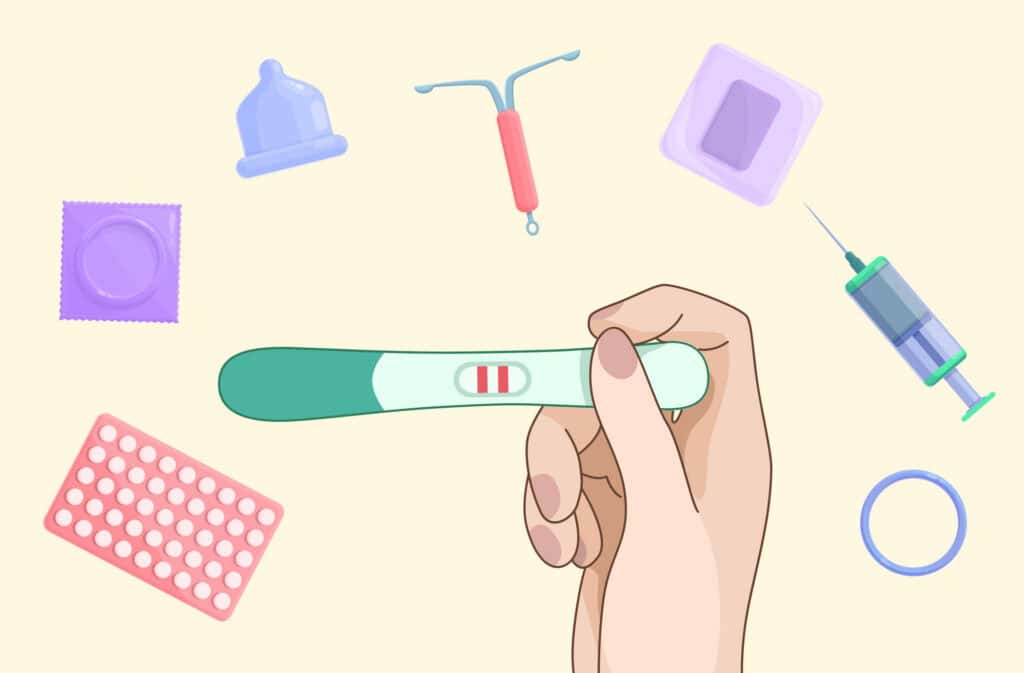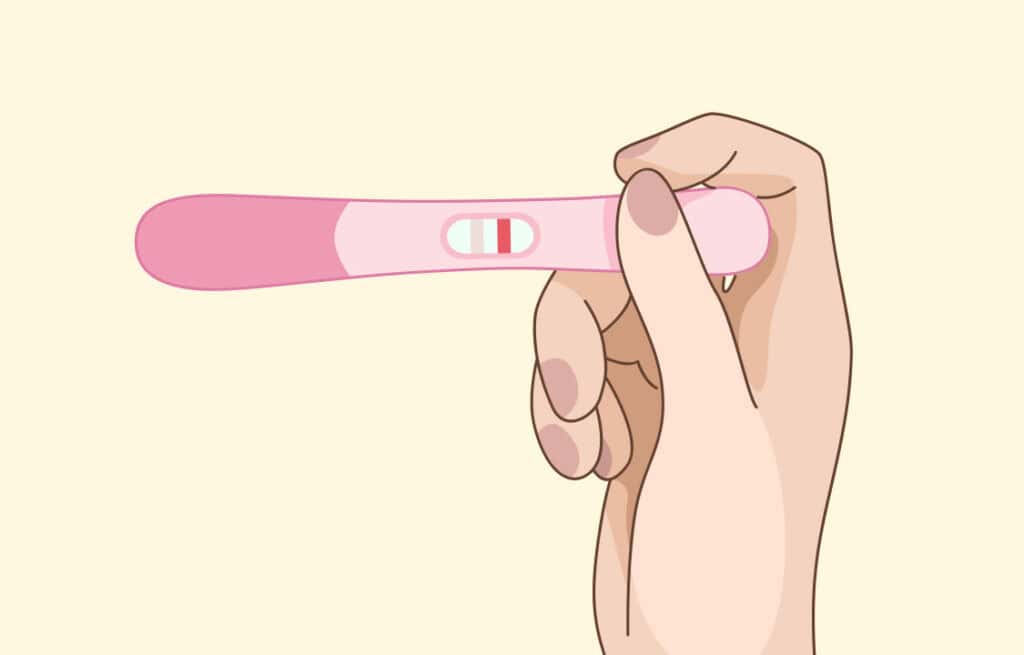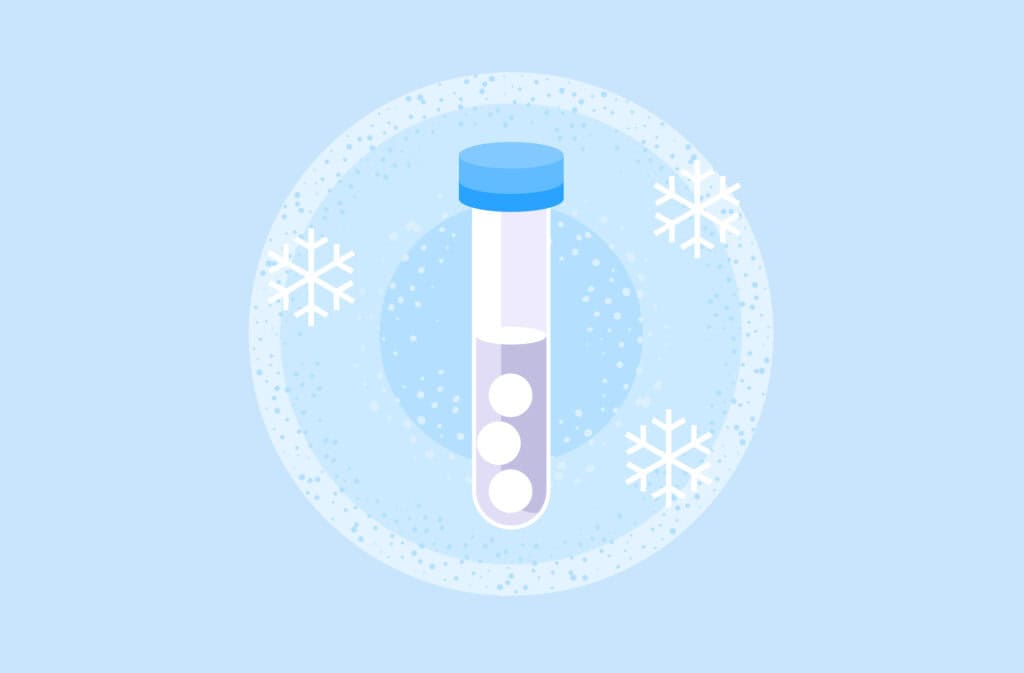Femia > Health Library > Getting Pregnant > Trying to conceive > What are the chances of getting pregnant after stopping birth control?
What are the chances of getting pregnant after stopping birth control?

- Updated Feb 10, 2025
- Published
CRAFTED BY HUMAN
Crafted by human At Femia, we provide accurate and up-to-date information at every stage of your journey, from trying to conceive, pregnancy and postnatal support. All content is created by a real person based on in-depth research and own professional experience. Femia ensures that you will receive expert advice, strict accuracy and a personalized approach from our authors/medical experts. Learn more about our editorial policy.
FACT CHECKED
Fact checked At Femia Health, we maintain the highest standards of editorial excellence in delivering content focused on helping you conceive, guiding you through pregnancy, and supporting you postpartum. Explore our content review principles to learn how we ensure the accuracy and quality of our health and lifestyle tips for every stage of your journey.
If you’ve recently decided to try for a baby, you might be wondering how long after birth control you can get pregnant. The good news is that for most methods of birth control, ovulation returns almost immediately. Most couples have around a 30% chance of conception in their first month of trying for a baby. The exception to this rule is the contraceptive shot, which can delay ovulation for ten months or even longer, in some cases.
If you’re ready to start a family, you probably want to know everything about getting pregnant after birth control. You may wonder how long after birth control you can get pregnant, whether birth control impacts long-term fertility, and whether you need to wait before trying for a baby.
So, what are the chances of getting pregnant after stopping birth control? Unfortunately, there’s no easy answer. How soon your fertility returns will depend on various factors, including what method of birth control you used and how long you were on it. Some people find that their fertility returns immediately, but others have to wait a while before they’re able to get pregnant.
Femia helped 35,000 couples to optimize their fertility
What are the chances of getting pregnant after stopping birth control?
How soon after stopping birth control you can get pregnant depends on the type of contraceptive method you’ve been using:
- Barrier methods
These are only effective while in use, so as soon as you have sex without a condom or other form of barrier method, there’s a chance you’ll fall pregnant. - Combination hormonal methods
Hormone combination pills, patches, and rings contain both estrogen and progestin, which prevents ovulation from occurring. Your fertility should return as soon as you stop using these methods, so you can get pregnant on your first cycle after cessation. So, your chances of getting pregnant in your first month off birth control pill are similar to if you’d never taken the pill. - Progestin-only contraceptives
Progestin-only contraceptives, such as the mini pill and progestin-only implant, don’t delay ovulation return, so you should ovulate during your first cycle after cessation. This means you could get pregnant during your first month of trying to conceive. - Intrauterine Devices (IUDs)
Fertility usually returns immediately after the removal of IUDs. - Contraceptive shot
Contraceptive shots, such as the Depo shot, provide lasting protection from pregnancy, but this does mean you should expect a delay in the return of your fertility. The shot provides three months of protection, but it can impact fertility for longer. A 2022 study published in Contraception X found that one shot provided pregnancy protection for longer than the stated three months, with none of the participants ovulating in the 7.5 months following the shot.
👉Find out more: How long should you be off birth control before trying for a baby
How long does it take to get pregnant after stopping birth control?
A comprehensive research review published in Contraceptive and Reproductive Medicine in 2019 looked at how long it took women to get pregnant after stopping various forms of birth control. They found that:
- Around 75% of participants conceived within 12 months of having their contraceptive implant removed.
- Around 85% of participants conceived within 12 months of having their IUD removed.
- Slightly over 85% of women were pregnant by one year after ceasing their oral contraceptive.
The contraceptive shot (Depo-Provera) is associated with a delayed ovulation return. The shot is administered every three months to prevent pregnancy. According to a study by Pfizer, 68% of participants had conceived within 12 months, which rose to 93% by 18 months. The delay in ovulation return was not impacted by how long a person had used this contraception.
How soon after stopping birth control can you get pregnant?
How soon after stopping birth control you can get pregnant depends partly on how soon ovulation returns. If you’re using the contraceptive shot, it may take a few months before your body is ready to ovulate again. With most contraceptives, however, ovulation can occur much sooner. You could ovulate as soon as 48 hours after coming off the contraceptive pill.
Tracking your cycles can give you a clearer understanding of your reproductive health and whether you’re ovulating. You can monitor your cycles using a tracking app, like Femia, to note your symptoms. Paying attention to your cervical mucus or measuring your basal body temperature each morning will help you determine whether your fertility has returned.
Chances of getting pregnant in the first month off birth control
Around a third of all couples wanting to conceive will get pregnant during the first month of trying. However, while ovulation may return immediately, that’s no guarantee you’ll get pregnant straight away. A 2003 article published in the British Medical Journal stated that couples had a 30% chance of conception during the first month of trying. By six months, around 75% of couples had conceived; 90% of couples conceived within a year; and 95% conceived within two years of trying.
Factors that can affect conception rates
There are several factors at play when it comes to whether or not you get pregnant quickly, such as:
- Age
Fertility decreases as you age, and this could be one reason why you haven’t conceived yet. According to an article published in the Upsala Journal of Medical Sciences, a woman in her 20s has an 85% chance of conceiving within a year. This drops to 75% by age 30 and 66% by age 35. By age 40, she has a 44% chance of conceiving within one year.
- Health
Underlying reproductive health conditions can further delay conception. If you know you have reproductive health issues, it’s worth making an appointment to see your OBGYN before trying for a baby. They may be able to offer tailored advice to help you conceive.
- The type of birth control used
Many types of birth control allow for an immediate return of ovulation. For example, your fertility will likely return immediately after your healthcare provider removes your implant or IUD. If you were on the contraceptive shot, however, it will take longer before your fertility returns.
How long does it take to get pregnant after being on birth control for 5 years?
The amount of time you spend on birth control should not impact how long it takes you to conceive. A 2018 study published in Contraception and Reproductive Medicine found that the type and duration of contraceptive method used did not affect women’s long-term fertility or delay the return of ovulation. The exception to this rule is the contraceptive shot, which is known to delay the return of fertility for several months. However, even in this case, the length of time spent taking the shot did not affect how long it took for fertility to return.
Earliest ovulation after stopping birth control pill
For most birth control methods, ovulation will occur within a couple of weeks of stopping. Ovulation occurs halfway through your cycle, so this will happen before your first period. Your cycles may not be regular for the first few months, as your body adjusts to life without contraception, but they should soon return to your usual pattern.
How long should you be off birth control before trying for a baby?
While some couples conceive immediately, your doctor may recommend waiting until your regular cycles return. It’s worth speaking to your OBGYN before getting pregnant after birth control. Often, the recommended delay is to help you track your cycles, understand your fertile window, and easily pinpoint your estimated due date when you get pregnant. However, you may not want to wait if you’re keen to have a baby, and that’s up to you.
👉 Find out more: Can you get pregnant without a period?
Tips for getting pregnant after stopping birth control
If you’re keen to get pregnant as soon as possible, the following tips can help:
- Make healthy lifestyle changes
Eating a healthy diet can help your body and your reproductive system function optimally. Regular exercise can boost fertility, and maintaining a healthy weight can ensure good reproductive health.
- Reduce stress
Not getting pregnant is stressful, and having people constantly tell you to relax can be rage-inducing. However, stress is known to negatively impact fertility. Mindfulness, yoga, and regular exercise can help you manage your stress. Getting enough sleep is also essential for your stress levels.
- Track your cycles
The best way to boost your chance of conception is to ensure you’re having sex at the right time of the month. If you have irregular cycles, it can be difficult to guesstimate when ovulation will occur. Tracking your cycles can help you time sex effectively to boost your chance of conception.
- Start taking supplements
If you’re trying for a baby, it’s time to start taking a daily prenatal supplement. The primary consideration is folic acid, so ensure your prenatal supplement has enough folic acid (or folate) to support a healthy pregnancy in its early stages.
When to consult a doctor if you’re having trouble conceiving
Some couples need a little help getting pregnant, so it’s vital to seek medical help if you aren’t conceiving. While taking a while to get pregnant can be normal, a longer-than-expected delay could be a sign that medical assistance is needed. You should make an appointment to see your OBGYN if you:
- Have any underlying reproductive health conditions (e.g., PCOS or endometriosis) and would like to try for a baby
- Are aged 34 and under and haven’t conceived within 12 months
- Are aged 35 to 39 and haven’t conceived within six months
- Are aged 40 and would like to have a baby
Your doctor will ask questions about your fertility history and run tests to identify whether there is a problem. They will then develop a treatment plan or advise you on natural ways to boost fertility.
Femia helped 35,000 couples to optimize their fertility
Questions from the Femia community
Is it normal to not ovulate right away after stopping birth control?
It can take a few cycles for ovulation to return to normal, but most women will find this happens straight away. The contraceptive shot, however, can lead to a delay in ovulation return.
Can I get pregnant if I stopped birth control mid-pack?
Yes. It’s essential to take your birth control as prescribed. If you stop taking the pill mid-pack, it’s possible to get pregnant.
Does stopping birth control affect the quality of your eggs?
Birth control won’t impact the quality or number of eggs. Your fertility should return to its natural levels soon after stopping birth control (apart from the contraceptive shot, which can take longer). However, your age may impact your fertility.
Can you get pregnant before your first period after stopping birth control?
Yes; ovulation occurs midway through your cycle, so it’s possible to get pregnant before your first period after stopping birth control. For this reason, it’s worthwhile tracking your cycle to look for signs of ovulation and identify your fertile days.
The bottom line
For most women, fertility returns soon after stopping birth control. You have around a 30% chance of conceiving during your first month of trying. Factors that can inhibit conception include reproductive health, age, and the type of birth control used. Most couples conceive within six months of trying, but it can sometimes take longer.
While most birth control only temporarily pauses fertility, the contraceptive shot can prevent ovulation for up to 18 months (though it usually returns sooner than this). If you take the Depo shot, you will want to plan for a baby in advance; your healthcare provider should discuss this with you when administering the shot.
Contact your OBGYN if you are worried about how long it’s taking you to get pregnant. If you are under the age of 35, you should visit your OBGYN if you haven’t conceived after a year of trying. If you are aged 35 to 39, you should see your OBGYN after six months. If you are aged 40 or have any underlying reproductive health conditions, see your OBGYN as soon as you decide to try for a baby.
References
- Delbaere, Ilse, et al. “Knowledge about the Impact of Age on Fertility: A Brief Review.” Upsala Journal of Medical Sciences, vol. 125, no. 2, 2020, pp. 167–74, doi:10.1080/03009734.2019.1707913. https://www.ncbi.nlm.nih.gov/pmc/articles/PMC7721003/.
- Pharmacia & Upjohn Company LLC. DEPO-PROVERA – Medroxyprogesterone Acetate Injection, Suspension. Pfizer, https://labeling.pfizer.com/showlabeling.aspx?id=522. Accessed 2024.
- Girum, Tadele, and Abebaw Wasie. “Return of Fertility after Discontinuation of Contraception: A Systematic Review and Meta-Analysis.” Contraception and Reproductive Medicine, vol. 3, no. 9, 23 July 2018, doi:10.1186/s40834-018-0064-y. https://www.ncbi.nlm.nih.gov/pmc/articles/PMC6055351/.
- Taylor, Alison. “ABC of Subfertility: Extent of the Problem.” BMJ, vol. 327, no. 7412, 2003, pp. 434–36, doi:10.1136/bmj.327.7412.434. https://www.ncbi.nlm.nih.gov/pmc/articles/PMC188498/.
- Taylor, Douglas J., et al. “Ovulation Suppression Following Subcutaneous Administration of Depot Medroxyprogesterone Acetate.” Contraception: X, vol. 4, 100073, 23 Feb. 2022, doi:10.1016/j.conx.2022.100073. https://www.ncbi.nlm.nih.gov/pmc/articles/PMC8907671/.

Learn how to perform reverse Kegels to effectively relax your pelvic floor muscles: Step-by-step techniques, benefits, and tips for these exercises for pelvic health.

Learn how soon after sex should you take a pregnancy test. Discover the best timing for a pregnancy test after sex. Expert tips and advice. Get all the answers on Femia.

Learn about egg freezing technique to persevere fertility in all details, including reasons for egg freezing, timing and factors affecting success rates.

